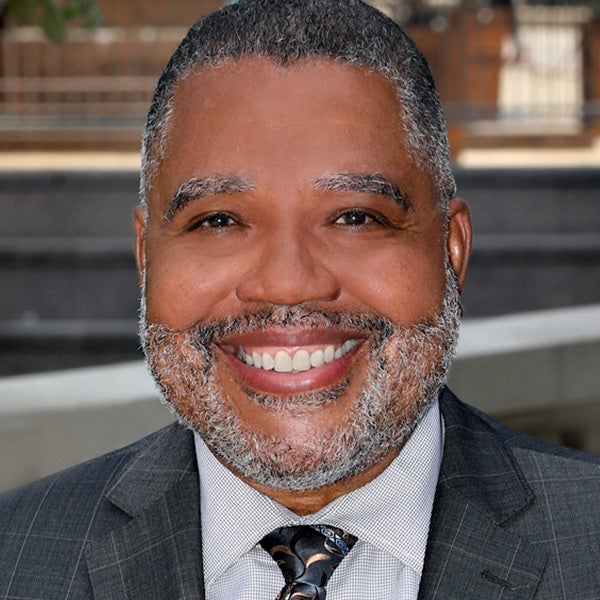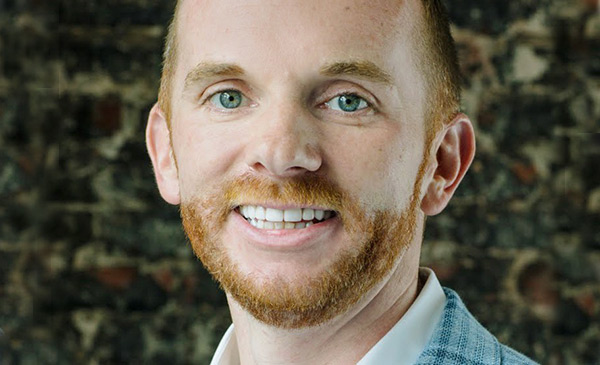Alumni Spotlight: Donald J. Dew, MSW ’80
Introduction
Donald J. Dew is President and CEO of Habilitative Systems, Inc. (HSI) and has more than 38 years of experience in health and human services. Since 1990, he has led HSI in its continuum of care approach that builds healthy communities for underserved populations with disabilities and people living with an array of human services needs. The agency has undergone tremendous development, with numerous residential facilities for people with disabilities, a residential women’s treatment facility, emergency housing and more.
An Interview with Donald J. Dew, MSW '80

Community-centered practice is of primary importance at JACSW. What do you think are the benefits of this approach to social work?
I think it’s very important. HSI employs over 100 people, and more than half of them reside in the Westside communities that we serve. The problems presented by the people we serve are the same problems our staff encounter in their daily lives. Thus, staff can connect with community members on multiple levels and be more effective. Is it essential that staff come from the community? It’s not essential, but it really aids in the process of being community-centered and focused.
Does community-centricity have particular benefits to practice in mental health?
When we come to work at HSI, we have to be mindful and cognizant of where we’re at. We know we’re on the west side of Chicago. I’ve been in my office here and heard gunshots, I’ve looked out my window and seen a man laying on the ground who had been shot, with paramedics trying to revive him. This is just a reality of providing comprehensive and practical services in an environment that experiences poverty, violence and trauma. All the social determinants of health that social workers talk about, we see acted out daily here. So, in talking about a community-centric approach to mental health services, we are prepared with a relevant mindset and a trauma-informed approach.
In 2012, the City of Chicago closed six of its free mental health clinics; what impact has that had for marginalized communities?
The lack of access to desperately needed mental health services, due to the trauma and poverty experienced generationally, became more evident because of these closures. During this period, we have seen an increase in persons with mental illness incarcerated, detained and institutionalized, as well as an increase in the ranks of the homeless. I like to say that these people don’t fall through the cracks, they fall into another system. Nine times out of ten, the system they fall into will ultimately be more costly than providing community-based services. This is intolerable. Fortunately, the Cook County Health and Hospital System provided funding three years ago for HSI to establish our Westside Community Triage and Wellness Center, in partnership with the Bobby Wright Comprehensive Behavioral Health Center, to mitigate the adverse impact of these closures.
Pullquote #1
I like to say that these people don’t fall through the cracks, they fall into another system. Nine times out of ten, the system they fall into will ultimately be more costly than providing community-based services.
Interview part 2
Mayor Lightfoot has awarded $8 million in grants to community organizations providing mental health services; do you think this is enough to offset the impact of clinic closures?
HSI is pleased to be a part of Mayor Lightfoot’s initiative to combat mental illness in Chicago. Clearly, when County, State and Federal sources supplement this funding, mental health needs can be addressed comprehensively. Because what we’re really dealing with here is system fragmentation. Too often practitioners are dealing with one piece of a person: the client presents with mental illness, or substance use, or a developmental disability, or they were exposed to trauma or violence. But the reality is that the person may be experiencing all of the above. And there may be medical concerns, be it diabetes, heart disease, cancer, that require an integrated approach. Unfortunately, one system does not provide the opportunity to treat the whole person.
What are the practical implications of the move toward Medicaid managed care and value-based payments for community-based organizations?
As always, these mandates require additional financial support, and improved infrastructure such as Electronic Health Records and staff training. Recruitment of individuals with relevant talent and competency is also critical and costly because we must now compete with managed care organizations. During these efforts to keep pace with regulatory requirements and compliance controls, our agency is held to the same standards of performance as larger agencies with more resources. But a smaller organization like ours still needs the same competency level. I hope schools of social work can examine what they can add to their curriculum to prepare social workers for this new trend.
The past year brought a number of additional stressors into the lives of poor people of color. Have you seen an increase in the number of people accessing services?
We have absolutely seen this. Fortunately, because of our ties to the community, HSI has been well-positioned to respond. Last year we were selected as a Regional Intermediary for the Illinois Department of Human Services Census 2020 initiative. We formed the Counting on Chicago Coalition 2020, consisting of more than 30 organizations and businesses to assist with community outreach and engagement efforts. While we were conducting outreach for the Census, we were also doing outreach to connect people with a variety of services. So whatever people were presenting with, we are able to say, “We got you, we can help you.” And that happened 45,000 times. Think about folks not being connected to services and falling into greater crisis mode. If any of us aren’t getting our basic human needs met, it can potentially become a crisis, and be potentially traumatizing.
What advice do you have for practitioners to help clients who are grappling with all those issues?
Continuously strive for the greatest levels of compassionate competency in our communities. Continue to grow, develop and explore the potentiality of going where no social worker has gone before.
Pullquote #2
Continuously strive for the greatest levels of compassionate competency in our communities. Continue to grow, develop and explore the potentiality of going where no social worker has gone before.
Interview part 3
In some communities there can be a stigma connected to accessing mental health services; why does this stigma exist?
We talk a lot about stigma. Many in our community do not want to appear as being defeated by institutional racism, disparities and inequities. But, bringing in the idea of epigenetics, how many of these traumatic experiences are passed down genetically? That is a really powerful concept. People might be reacting in ways that have been learned by ancestors and passed down. So I like to tell people that if you’re here, after 400 years of trauma and terror, pain and suffering, it means that you’re the strongest of the strong. You’re descended from folks who weathered those storms. I try to build on strengths and lift folks up to help them deal with these adversities. If we know this is something in the psyche that we have to battle against, we have to be aware of the stigma, the fear folks have of hearing, “Oh, you’re just crazy. You have issues.”
What advice do you have for someone considering founding a community-based organization?
Conduct a comprehensive PESTLE analysis, which examines Political, Economic, Social, Technological, Legal, and Environmental concerns. You look at all the external factors going on. It’s more than just a needs assessment. You have to look at all the factors and climates to get true insight into what’s going on in that community. Look at the extent to which a particular geographic locale in the city of Chicago is still impacted by things such as institutional racism and health disparities. If you want to open a community-based organization, you have to do a PESTLE analysis to see what’s going on in the community, to see what even makes sense to do.
What was the most important thing you learned during your time as a student at JACSW?
Embrace your potential, always strive to do your best work, remain rightfully intentioned and maintain a good sense of self and ethics. When I first started as a JACSW student, I had a professor, Dr. Eloise Cornelius, who told me that we had to “break the bottleneck” of my experience. She said that I couldn’t expect to receive everything they had to teach me, and they’d have to squeeze it through the bottleneck of my experience and my then current perception, that we had to break off the bottleneck and open it up wide so more knowledge could flow through. So, don’t screen anything out, let it flow. And be prepared to go beyond where you think you’re going to go. Back then, I never dreamed I’d be an administrator, but additional experiences expanded my thoughts about my own potential and what I could ultimately achieve in the community.
As a JACSW alumnus you’ve repeatedly served on the host committee for the annual Alumni & Friends Celebration, and even served as committee co-chair. What motivates you to remain involved with the college?
I love JACSW and its legacy, and I feel that I must do my part to sustain it. It’s all about sustainability and making sure this institution – that helped launch your career and servant leadership focus – making sure that others get the opportunity to do the same things. Whatever I can do to keep the focus and the spotlight on JACSW, that’s what I want to do.
Any parting thoughts that you’d like to share?
We need more competent social workers willing to carry the torch and advocate for those without a voice. Now is the time! Dr. Martin Luther King, Jr., in his book Why We Can’t Wait, talked about a “fierce urgency of now”. And there is a fierce urgency of now. If we don’t embrace the now, five, ten or fifteen years will go by and we’ll still be talking about what might be possible. Instead, we need to reach, grasp and realize what is possible and needed right now.

